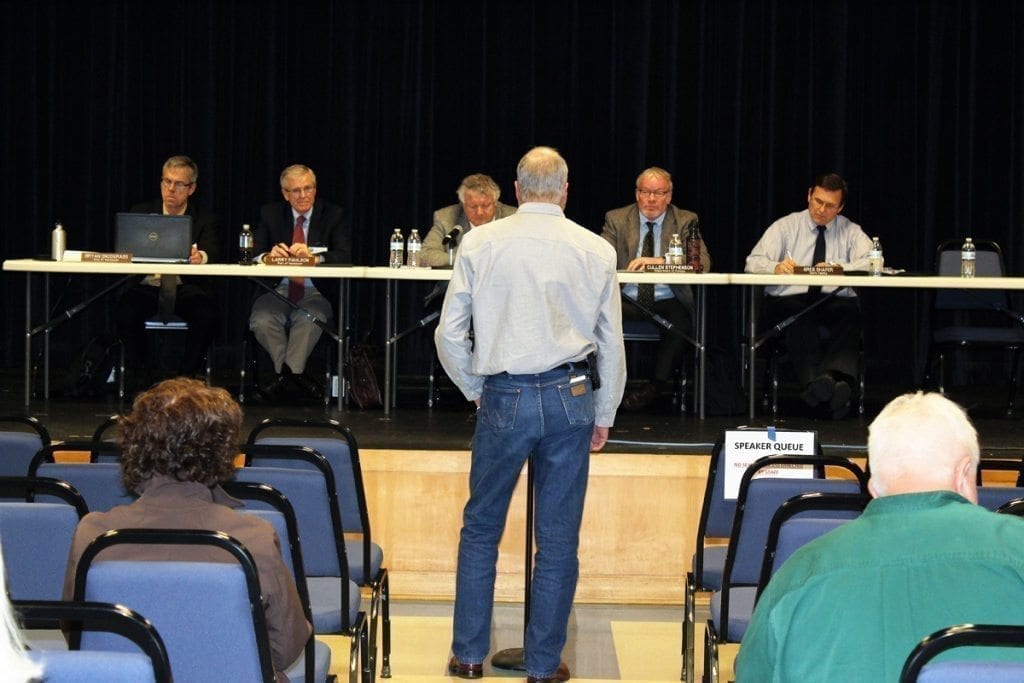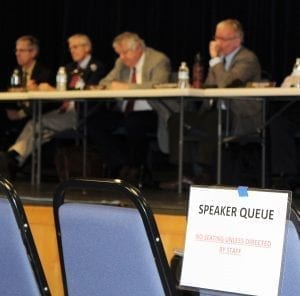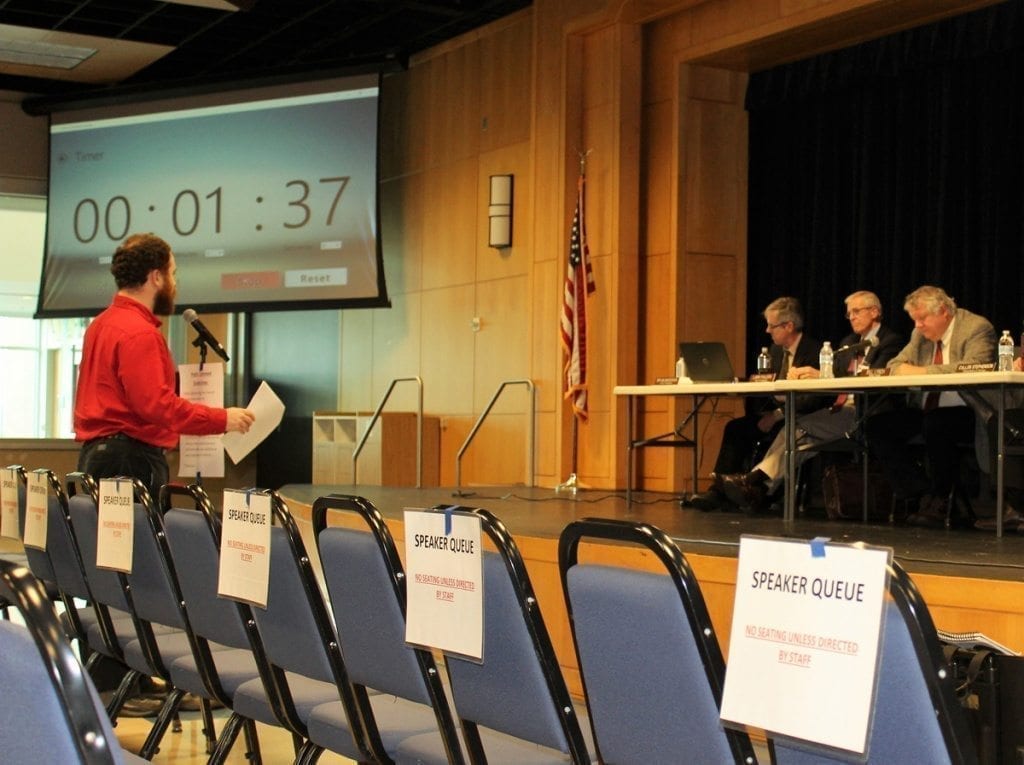VANCOUVER — A diverse group of Native American tribal members, environmental stewards, Clark County residents, business leaders and trades industry representatives came out this afternoon to share their views on the proposed Vancouver Energy oil terminal project proposed for the Port of Vancouver.
If built, the terminal, a joint venture between the Tesoro and Savage corporations, would be the largest crude oil terminal in the United States, bringing 380,000 barrels of oil a day to the Port of Vancouver. The oil would arrive by rail, be loaded into temporary holding tanks at the Port, and eventually leave Vancouver via shipping containers, traveling down the river toward the Pacific Ocean and oil refineries throughout the West Coast.

Advocates of the Tesoro-Savage oil terminal project say the proposal is safe, takes into account the sensitive nature of the Columbia River, does not pose the same environmental and health risks as an oil refinery, will stimulate state and local economies by providing jobs and will reduce the nation’s foreign-oil dependence.

But opponents of the massive rail-to-ship oil terminal — including the cities of Vancouver, Washougal and Portland, Clark County, the Vancouver Firefighters Union, the Rosemere Neighborhood Association in Vancouver, the Local Union International Labor and Warehouse Union Local 4, Columbia Riverkeeper, several Native American tribes in the Pacific Northwest, Friends of the Columbia Gorge, the Sierra Club and the Washington Environmental Council and the Washington State Attorney General — say the project poses enormous risk to the environment and to human health.
On Tue., Nov. 29, opponents and proponents gathered in the student center of Clark College in Vancouver for a six-hour public hearing before the Washington State Energy Facility Site Evaluation Council (EFSEC) to comment on a proposed construction stormwater general permit. Tesoro-Savage cannot begin construction on the oil terminal without this permit. On Tuesday, the council was considering public comments before making their final decision on issuing or denying the permit.
“Although this permit represents only one of the permitting decisions that the EFSEC must make for Tesoro-Savage, if this project is approved, stringent controls in this permit will be vital,” stated Kristen Boyles, attorney for a group of environmental advocacy organizations that oppose the oil terminal project, in her written remarks to the council. “Stormwater discharges from construction sites can be some of the most polluted discharges covered under the Clean Water Act.”
Boyles added that there are a bevy of environmental risks at stake in issuing the construction stormwater permit to Tesoro-Savage: “Stormwater discharges can cause very serious environmental degradation — especially as a greater percentage of our region’s land is covered by impervious surfaces and our native salmon and steelhead continue to decline.”
Although a few speakers present during the first hour of the six-hour public hearing were in favor of the oil terminal project, the majority of speakers were there to voice opposition to issuing the stormwater permit.
One speaker, who described herself as a Portland business owner, reminded the council that Tesoro, which would be in charge of monitoring its own construction stormwater runoff into the Columbia River, is a company that has racked up several massive fines for environmental negligence — including a $2.4 million fine from the state of Washington for allegedly negligent practices that the state says contributed to the 2010 deaths of seven workers at the company’s oil refinery in Anacortes, Wash., and $10.4 million settlement reached in July of 2016 between the company and the U.S. Environmental Protection Agency for allegedly violating the federal Clean Air Act.

Asking Tesoro to monitor its own potential pollution, she told the council “is like asking Enron or Bernie Madoff to audit their own financial records.”
Other opponents included members of Native American Indian tribes from various parts of Washington, Oregon and the Pacific Northwest.
Cathy Sampson-Kruse, a member of the Confederated Tribes of Umatilla, spoke at Tuesday’s hearing and urged the council to not issue the permit and “be on the right side of history.”
“As an enrolled CTUIR (Confederated Tribes of the Umatilla Indian Reservation) tribal member of the four Columbia River Treaty Tribes, I ask you … think of the Salmon People, for your future generations and mine,” Sampson-Kruse told the council. “We have seen the devastation to fishery runs in our tribal sovereign nations … the time is now to stop mitigating and start protecting.”
In her closing statement, Sampson-Kruse urged the council to protect the sacred lands of the Salmon People, saying: “dirty, extreme fossil fuel is being carried through our homelands, down our waterways, and it must stop. We all have a moral obligation to rise up, speak out and protect the sacred.”
To read more about the construction stormwater general permit, visit the EFSEC site, here. To see the Vancouver City Council’s letter to the EFSEC asking that the council consider all the various safety, environmental and health concerns surrounding the project, click here.




